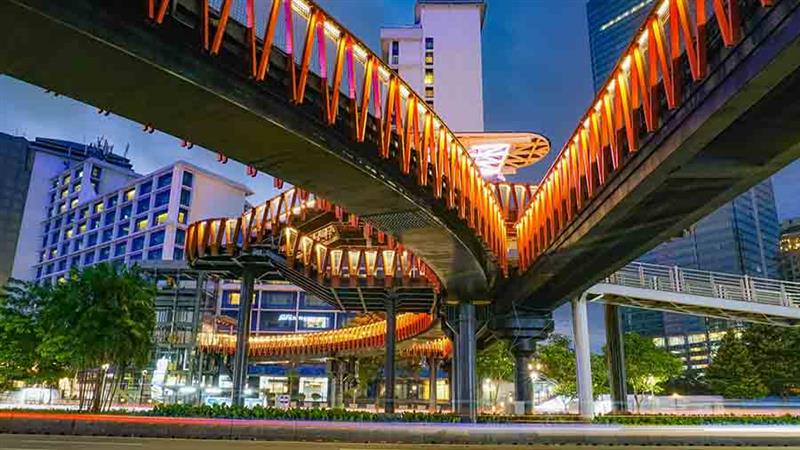The Indonesian government issued Government Regulation 29 of 2021 (GR 29/2021) in early 2021, an implementing regulation to the Omnibus Law and which makes changes on issues of trade, particularly in areas such as the distribution of goods, exports, and imports, and the activities of foreign investment companies in the retail sector, among others.
The government also introduced several implementing regulations to GR 29/2021, in the form of Ministry of Trade Regulation 24 of 2021 (MOT Reg 24/2021) and Ministry of Trade Regulation 17 of 2021 (MOT Reg 17/2021) which sets out the framework for the distribution of goods and the facilitation of import and export activities.
We discuss the key provisions under these three implementing regulations.
Provisions on the distribution of goods
The indirect distribution of goods
GR 29/2021 states that the indirect distribution of goods must be accompanied by some kind of transaction documentation, and can be undertaken through the following types of business actors:
- A distributor and its network (distributor, retail, and wholesaler);
- An agent (distributor, retail, and wholesaler); and
- A franchise.
Distributors must have a business identification number and a distributor business license in addition to owning or controlling a registered warehouse. If a manufacturer appoints a sole distributor, this appointment is valid for five years and must be extended at least once ( a five-year extension). Under MOT Reg 24/2021 distributors and sole distributors may appoint sub-distributors while agents and sole agents can appoint sub-agents.
The direct distribution of goods
Companies engaged in the direct distribution of goods also require a business identification number and must meet the following criteria:
- Holds an exclusive distribution right for the products;
- Has adopted a code of conduct;
- Has a marketing plan;
- Sells directly to consumers via a marketing network approved by the sellers; and
- Recruits direct sellers.
Manufacturers are prohibited from distributing goods directly to consumers unless these manufacturers are classified as micro and small businesses.
Export and import
The exportation or importation of goods may only be conducted by exporters and importers that have acquired the necessary licenses. The company’s business identification number doubles up as their import or export license, although they will also need to obtain an exporter registration and/or export approval or an importer registration and/or import approval.
The aforementioned licenses are not required if the imported products are not used for business purposes. The Ministry of Trade has now been given the authority to grant ease of business licensing to ‘reputable’ exporters and importers.
The criteria to qualify as a reputable exporter or importer is highlighted under MOT Reg 17/2021, the company must meet the following criteria:
- Must be a valid taxpayer for the last two years which will be confirmed by the Ministry of Finance;
- Carry out the export of goods in the last two years in accordance with the line of business;
- Fulfill the obligation to report on the realization of all exports that have been undertaken for every commodity; and
- Have never been subject to administrative or criminal sanctions.
Warehousing
A warehouse must have a warehouse registration number issued by the governor, mayor, or regent where the warehouse is located. The owner of the warehouse must record the name, type, origin, and purpose, etc of the goods stored in the warehouse, although this is not necessary for a warehouse that is used temporarily by a logistics company.
Foreign investment companies in the retail sector
Previously, foreign investment restrictions applied to the retail industry, with particular restrictions imposed on department stores and self-service stores. Supermarkets with floor space below 1,200sqm and department stores with floor space of between 400 sqm and 2,000 sqm were capped at 67 percent foreign ownership.
These conditions are no longer being retained but certain conditions such as that the minimum area of a department store must be 400 sqm are being retained. Moreover, grocery stores in the form of department stores are open to foreign investment if they are located in a shopping center. The ownership of department stores that are not located in or integrated with shopping centers is limited to local companies.
The use of Bahasa Indonesia for labeling
All products sold in the domestic market must use the Indonesian language. The exemption from the use of labels in Indonesian is for goods produced by micro and small enterprises or for bulk goods that are traded directly to consumers.
The label must show information regarding the origins of the goods, and the name and address of the company/entrepreneur. Entrepreneurs that utilize a third-party packaging service must include the information of the packaging service’s name and address on their goods.





















